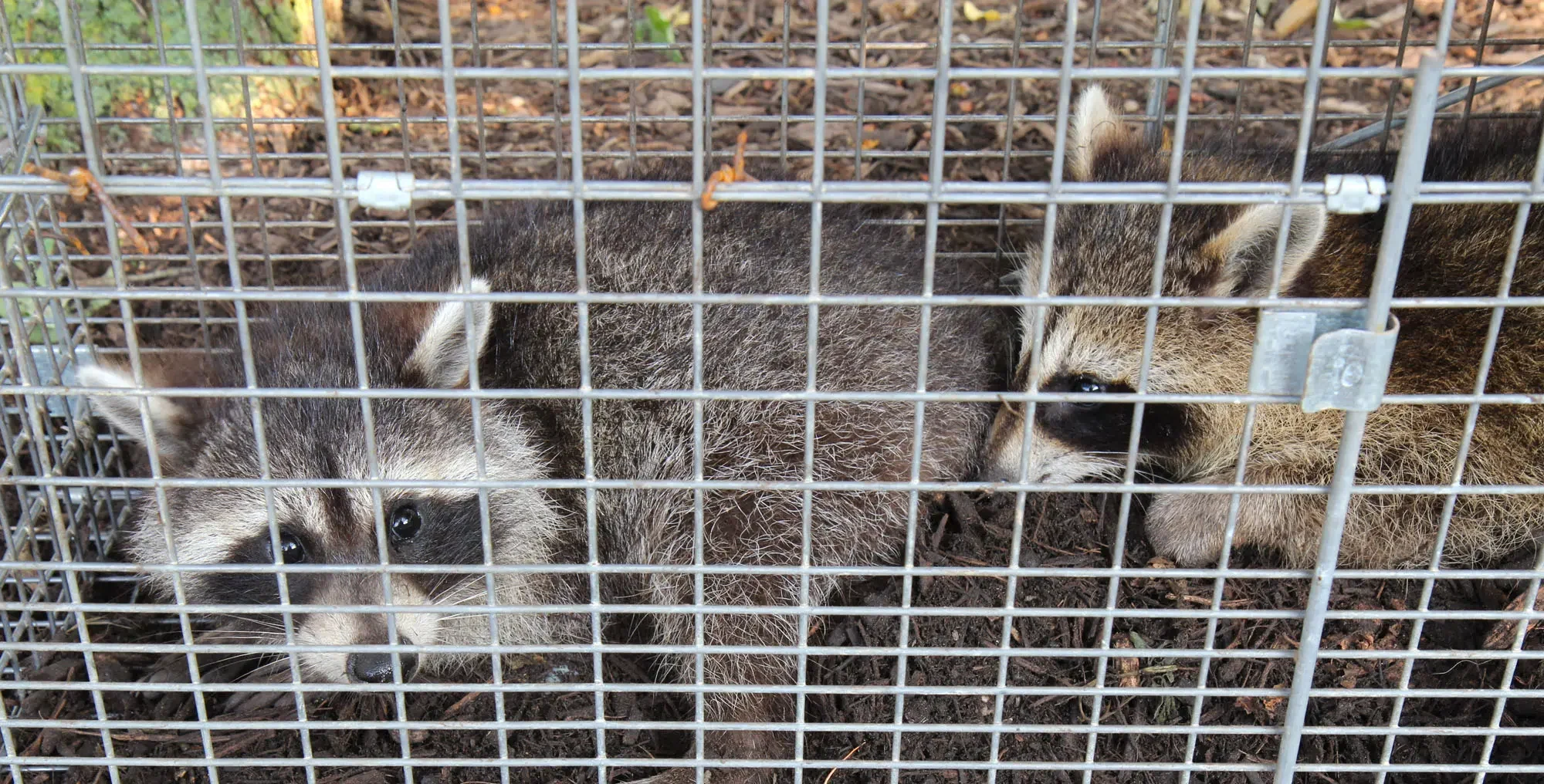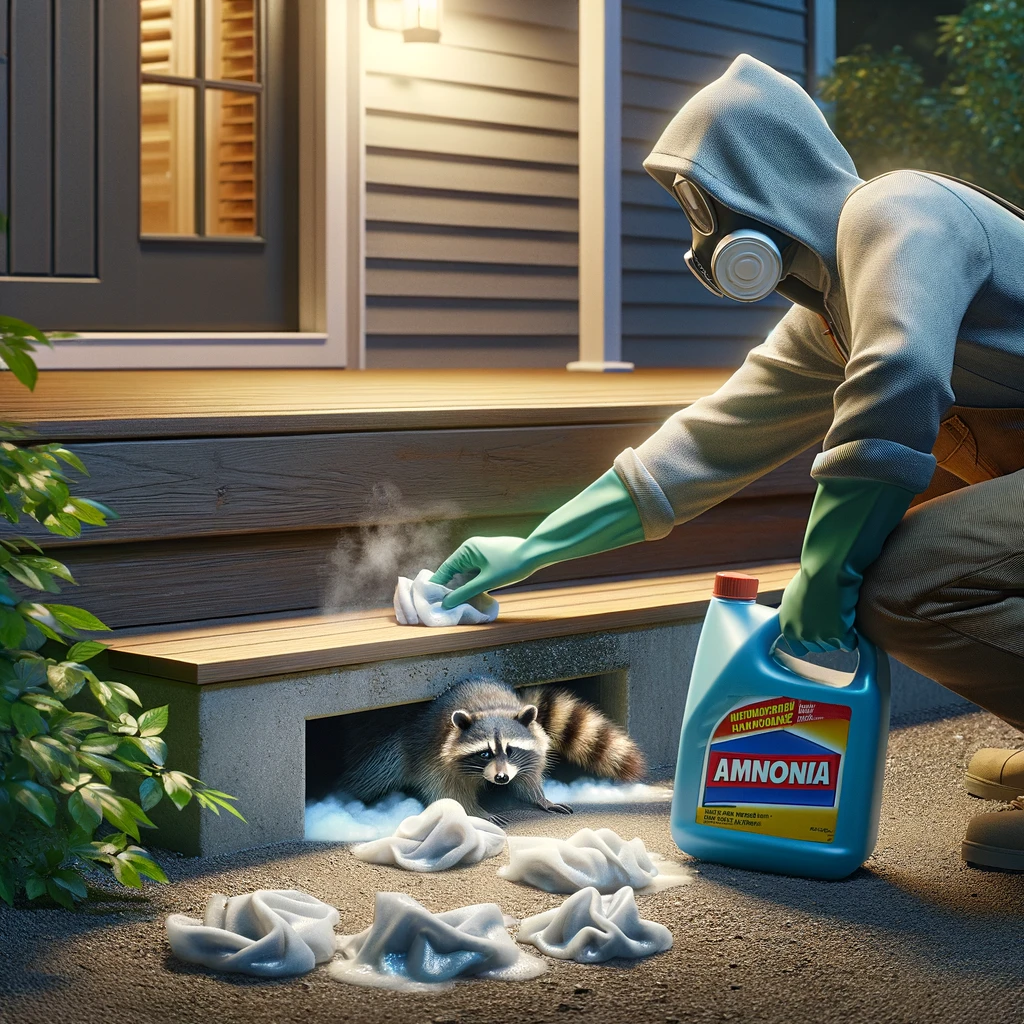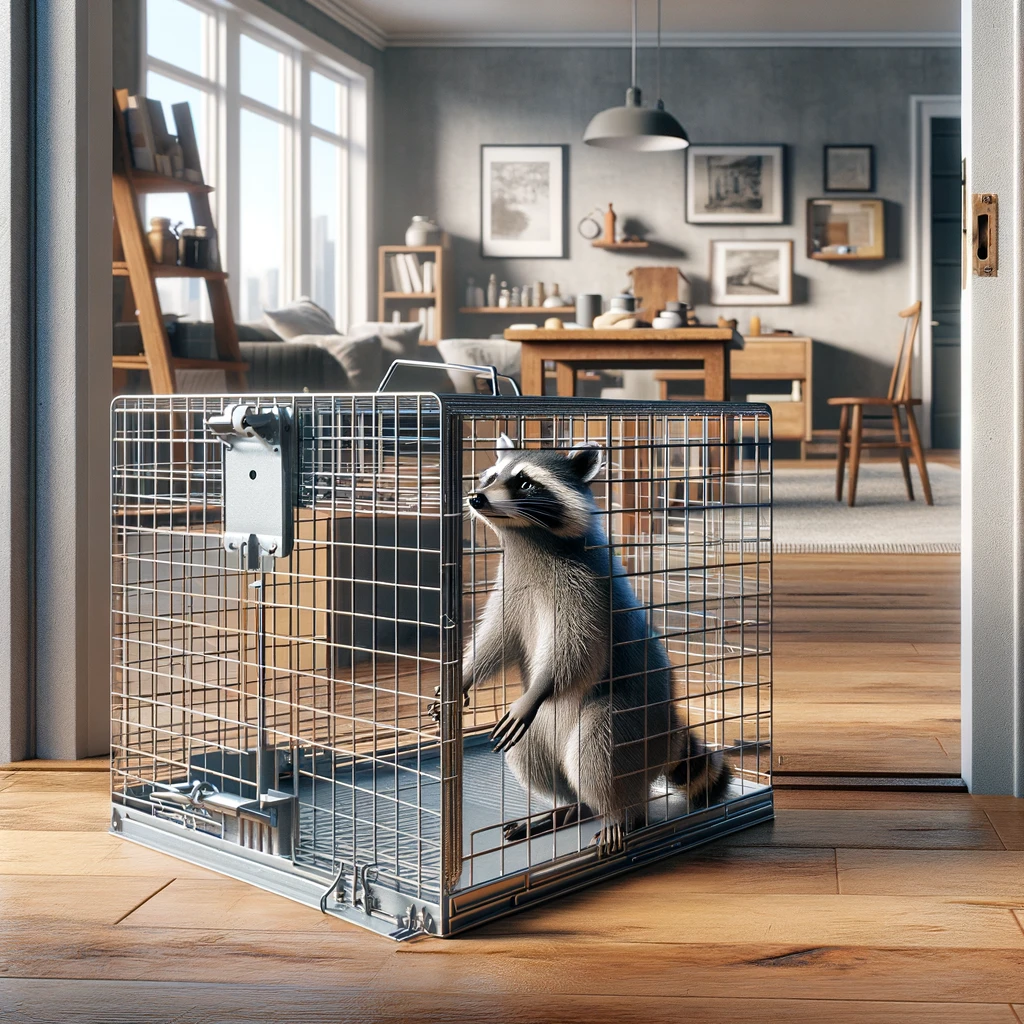
Raccoons are intelligent and resourceful creatures that can cause havoc when they invade residential areas. From rummaging through garbage cans to making a home in your attic, raccoons are known for their ability to adapt and find ways to thrive in human-populated spaces. If you find yourself dealing with raccoons on your property, it's essential to have effective strategies for their removal and prevention. In this article, we will explore various methods to deter raccoons and safely deal with them if they have already made your property their home.
When it comes to raccoon prevention, it's crucial to start with deterrents that discourage them from approaching your property in the first place. Here are some effective ways to keep raccoons at bay:

1. Ammonia: Raccoons are highly sensitive to odors. Soaking rags in ammonia and placing them at entry points can create a strong smell that will deter raccoons. The pungent scent of ammonia mimics the smell of predators, making raccoons think twice before venturing near your property. Remember to replace the ammonia-soaked rags regularly to maintain the effectiveness of this deterrent.
2. Peppermint Oil: Raccoons dislike the strong scent of peppermint oil. Spraying diluted peppermint oil around your trash cans or other vulnerable areas can help to keep raccoons away. The refreshing aroma of peppermint not only acts as a natural raccoon repellent but also adds a pleasant fragrance to your outdoor space. Just be sure to reapply the oil after rain or heavy dew to ensure its potency.
3. Motion-Activated Sprinklers: Installing motion-activated sprinklers can startle raccoons and make them think twice about coming onto your property. These innovative devices use infrared sensors to detect movement and then release a sudden burst of water, surprising any raccoons that dare to venture into your yard. The unexpected spray of water not only acts as a deterrent but also provides a harmless and environmentally friendly way to protect your property.
Before you take steps to remove raccoons from your property, it's crucial to determine if they have already found their way into your attic or chimney. Look for the following signs:
1. Strange Noises: Raccoons are nocturnal creatures, so you may hear scratching, chirping, or scurrying sounds coming from your attic during the night. These sounds can be quite unsettling and may indicate that raccoons have made themselves at home in your attic or chimney.
2. Droppings: Raccoon droppings are cylindrical in shape and similar in size to that of a dog. If you find these droppings in or around your attic, it's a clear sign of raccoon presence. It's important to exercise caution when dealing with raccoon droppings as they can carry harmful bacteria and parasites.
3. Damage: Raccoons can cause significant damage to insulation, electrical wiring, and ductwork in your attic. Chewed wires and torn insulation are telltale signs of their presence. These mischievous creatures have strong teeth and claws, allowing them to wreak havoc on your property if left unchecked.
Remember, prevention is key when it comes to raccoon control. By implementing these effective deterrents and being vigilant for signs of raccoon presence, you can protect your property and ensure a raccoon-free environment.
Dealing with raccoons can be challenging, especially if they have already established a home on your property. Here are some tips for safely removing raccoons:

1. Choose the Right Trap: When trapping raccoons, use a live trap that is large enough to hold them comfortably. Ensure the trap is secured and stable to avoid injury to yourself or the raccoon.
2. Bait the Trap: Raccoons are attracted to sweet and smelly foods. Using bait such as cat food or peanut butter will increase the chances of capturing them.
3. Seek Professional Help: If you are unsure about trapping raccoons yourself, it's best to seek professional assistance. Wildlife control experts have the experience and knowledge to handle raccoon removal safely and efficiently.
If raccoons have made your attic their home, it's essential to take immediate action to avoid further damage to your property. Here's how to identify and deal with raccoon infestations:
1. Inspect the Attic: Carefully examine your attic for any signs of raccoon nesting. Look for torn insulation, nesting materials, and piles of droppings.
2. Seal Entry Points: Identify and seal any potential entry points in your attic. Raccoons can squeeze through small openings, so be thorough in your inspection.
3. Install One-Way Doors: Installing one-way doors at entry points will allow raccoons to exit your attic but not re-enter. Once all raccoons have left, seal the entry points permanently.
To effectively prevent raccoons from returning, it's essential to understand their behavior and what attracts them to residential areas. Here are some key points to consider:
1. Food Sources: Raccoons are opportunistic eaters and will be drawn to unsecured trash cans, pet food left outdoors, and bird feeders. Secure these food sources to discourage raccoon visits.
2. Shelter: Raccoons seek out sheltered areas to establish their dens. Ensure that access to potential den sites, such as crawl spaces and shed openings, is minimized.
3. Water Sources: Eliminate any standing water sources in your yard, as raccoons are attracted to them. This includes bird baths, pet water bowls, and leaky faucets.
Understanding raccoon behavior is crucial in effectively preventing their presence in residential areas. Raccoons are highly adaptable creatures and can thrive in various environments. They are known for their dexterity and intelligence, which allows them to find creative ways to access food and shelter.
One interesting fact about raccoons is their ability to remember solutions to complex problems for up to three years. This cognitive ability enables them to overcome obstacles and find innovative ways to obtain food and shelter. It's important to stay one step ahead by securing potential food and shelter sources to discourage raccoon activity.
Raccoons are primarily nocturnal animals, meaning they are most active during the night. Their keen sense of hearing and excellent night vision make them well-adapted to navigate in the dark. This behavior also explains why raccoons are often spotted rummaging through trash cans in the early hours of the morning.
By implementing these effective strategies for raccoon removal and prevention, you can keep raccoons at bay and protect your property. Remember to always approach raccoon removal with caution and, if necessary, seek professional assistance to ensure the safety of both yourself and the animals.